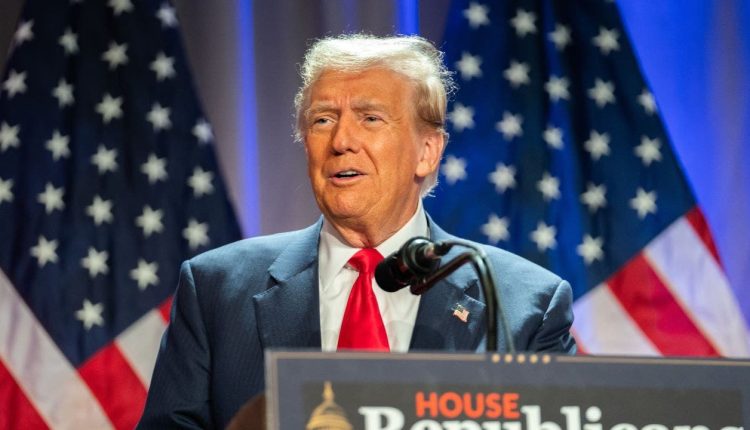President-elect Donald Trump on Monday denied a report that his transition team is considering a pared-back tariff plan that would be less extensive than what he proposed during his campaign.
The Washington Post reported, citing three people familiar with the matter, that Trump’s aides were drawing up plans that would see an across-the-board tariff that applies to every country but only covers imported goods deemed critical to national or economic security, rather than all imported products.
Such a policy would represent a notable shift from the tariff plans Trump outlined on the campaign trail, which included proposals for 10% or 20% across-the-board tariffs on all imported goods, as well as a 60% tariff on Chinese goods. However, the president-elect denied the report in a social media post.
“The story in the Washington Post, quoting so-called anonymous sources, which don’t exist, incorrectly states that my tariff policy will be pared back. That is wrong. The Washington Post knows it’s wrong. It’s just another example of Fake News,” Trump wrote in a post on Truth Social.
TRUMP’S PROPOSED TARIFFS: WHAT CONSUMER PRODUCTS COULD BE IMPACTED?
The Post’s report said the plans are in flux and haven’t been finalized, and it wasn’t clear from the report which industrial sectors would be targeted by the tariffs. The report said preliminary discussions were focused on tariffs for imports related to the defense industrial supply chain, critical medical supplies and energy production.
Reuters reported last month that a Trump transition team document recommended imposing tariffs on all electric battery materials globally in a bid to boost U.S. production and then negotiating individual exemptions with U.S. allies.
COSTCO EXEC WARNS TRUMP’S PROPOSED TARIFFS WOULD RAISE COSTS
It called for charging tariffs on “EV supply chain” imports including batteries, critical minerals and charging components.
The proposal reviewed by Reuters said the administration should use Section 232 tariffs, which are used to mitigate national security threats, to limit imports of such products.
In recent years, the Department of Defense has highlighted U.S. strategic vulnerabilities because of China’s dominance of the mining and refining of critical minerals like graphite and lithium that are needed for batteries, as well as rare-earth metals used in both EV motors and military aircraft.
Reuters contributed to this report.
Read the full article here

